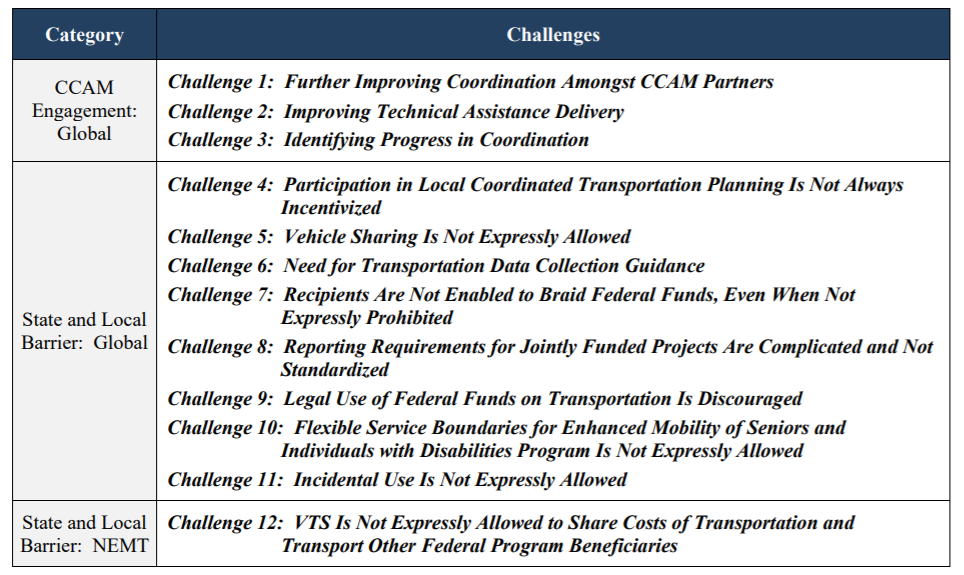Coordinating Council on Access and Mobility Report to the President, 2020
5 minutes Date Launched: Oct 1, 2020

Summary
The Coordinating Council on Access and Mobility (CCAM), a federal interagency transportation council established in 2004 by Executive Order 13330, works to improve coordination across federally funded services for people with disabilities, older adults and individuals of low income. Specifically, it targets human service transportation programs that aim to improve personal mobility, by increasing access and efficiency, to essential human services such as homes, jobs, education, medical appointments, etc. This report to the President was one of two requirements for the CCAM under the enactment of the Fixing America’s Surface Transportation (FAST) Act in 2015. A critical component of the report was to identify challenges to State and local transportation coordination that if addressed would eliminate common barriers. Through work such as focus groups, surveys, program analysis working sessions, and program inventory, CCAM identified two overarching categories that the 12 challenges fall into:
- Challenges related to CCAM agencies’ engagement in the Council
- Challenges related to State and local barriers to transportation coordination.
These challenges are further broken down into two subcategories: global challenges which if addressed, would improve Non-Emergency Medical Transportation coordination. The 12 challenges are listed in the table below. With these challenges in mind, the CCAM created four goals to achieve by the end of 2022, as part of its Strategic Plan. These goals include:
- Improve access to community through transportation
- Enhance cost-effectiveness of coordinated transportation
- Strengthen interagency partnerships and collaboration with State, local, and industry groups
- Demonstrate innovative coordinated transportation
The report also provides recommendations around vehicle sharing as well as recommendations around funding and cost sharing.
The full report can be found here.
Originally published November 2020, revised May 2025.